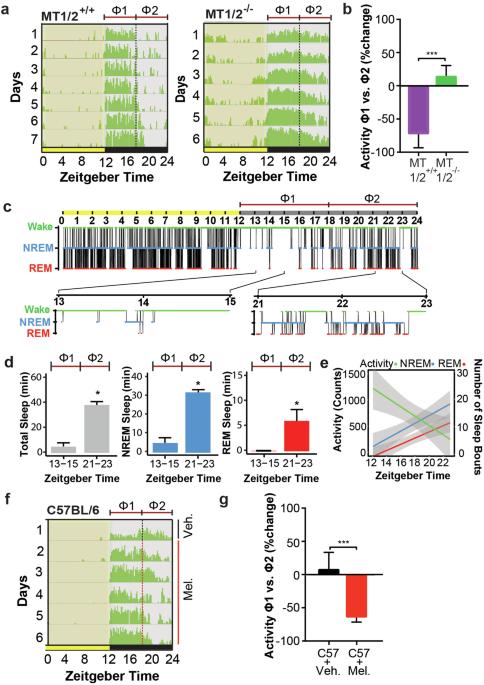Melatonin’s role in the timing of sleep onset is conserved in nocturnal mice
引用次数: 0
Abstract
Melatonin supplementation strengthens non‐restorative sleep rhythms and its temporal alignment in both humans and night-active rodents. Of note, although the sleep cycle is reversed in day-active and night-active (nocturnal) mammals, both, produce melatonin at night under the control of the circadian clock. The effects of exogenous melatonin on sleep and sleepiness are relatively clear, but its endogenous role in sleep, particularly, in timing sleep onset (SO), remains poorly understood. We show in nocturnal mice that the increases in mid-nighttime sleep episodes, and the mid-nighttime decline in activity, are coupled to nighttime melatonin signaling. Furthermore, we show that endogenous melatonin modulates SO by reducing the threshold for wake-to-sleep transitioning. Such link between melatonin and SO timing may explain phenomena such as increased sleep propensity in circadian rhythm sleep disorders and chronic insomnia in patients with severely reduced nocturnal melatonin levels. Our findings demonstrate that melatonin’s role in sleep is evolutionarily conserved, effectively challenging the argument that melatonin cannot play a major role in sleep regulation in nocturnal mammals, where the main activity phase coincides with high melatonin levels.

褪黑激素在夜行性小鼠睡眠开始时间中的作用是一致的
在人类和夜间活动的啮齿类动物中,补充褪黑激素可加强非恢复性睡眠节律及其时间调整。值得注意的是,虽然昼行性和夜行性(夜行性)哺乳动物的睡眠周期是相反的,但两者都在昼夜节律钟的控制下于夜间产生褪黑激素。外源性褪黑激素对睡眠和嗜睡的影响相对明确,但其在睡眠中的内源性作用,特别是在睡眠开始(SO)的时间上的作用,仍然鲜为人知。我们在夜间活动的小鼠身上发现,午夜睡眠发作的增加和午夜活动的减少与夜间褪黑激素信号传导有关。此外,我们还发现内源性褪黑激素通过降低唤醒到睡眠转换的阈值来调节睡眠时间。褪黑激素与睡眠时间之间的这种联系可以解释昼夜节律睡眠障碍中睡眠倾向增加以及夜间褪黑激素水平严重降低的患者长期失眠等现象。我们的研究结果表明,褪黑激素在睡眠中的作用在进化过程中得到了保留,从而有效地质疑了褪黑激素不能在夜间哺乳动物的睡眠调节中发挥主要作用的论点,因为夜间哺乳动物的主要活动阶段与褪黑激素的高水平相吻合。
本文章由计算机程序翻译,如有差异,请以英文原文为准。
求助全文
约1分钟内获得全文
求助全文

 求助内容:
求助内容: 应助结果提醒方式:
应助结果提醒方式:


